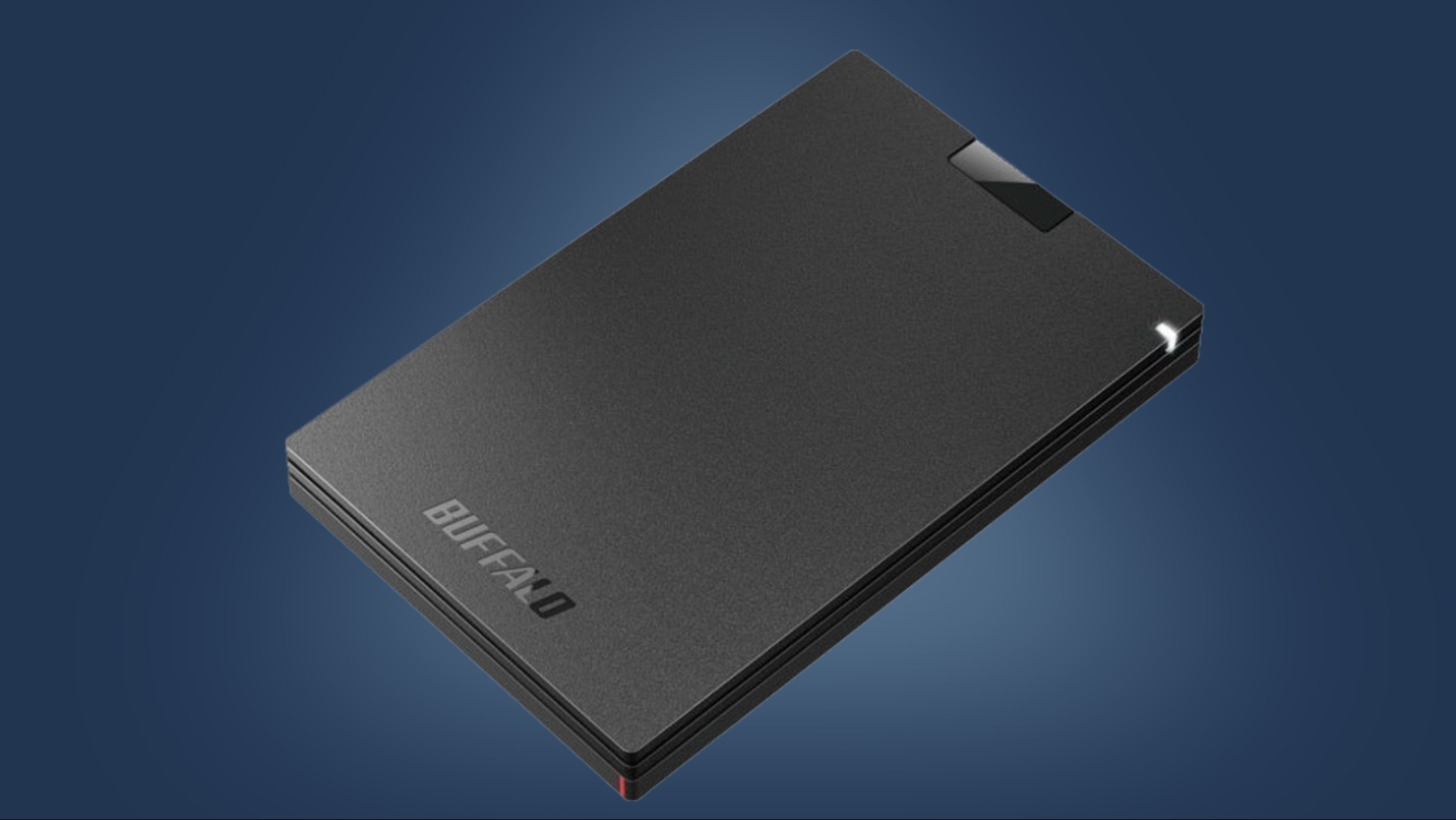Meet the world’s first sub-$100 1TB portable SSD: here's what it means to you
Buffalo Technology reveals surprise SSD launch

Sign up for breaking news, reviews, opinion, top tech deals, and more.
You are now subscribed
Your newsletter sign-up was successful
Specialist Japanese data storage company, Buffalo Technology, is probably the last SSD vendor we’d expect to release the first external SSD with a 1TB capacity costing less than $100.
And yet, the outfit, better known for its expensive high end Terastation NAS devices, has lined up the SSD-PG1.0U3B.
- Check out the best cloud storage for photos
- Here are the best rugged hard disk drives
- These are the best external hard drives out there
How much does it cost?
Its marquee price of $99.99 is valid only on Amazon.com for US customers.
However, Amazon sells it at a premium to pretty much anyone worldwide who has an Amazon.com and that includes both UK and Australian customers for a far less enticing price of $163.49 (or local currency equivalent).
The price includes delivery (and courier fees) but not local taxes, which in the UK will add another 20% to the price.
What do you get for your money?
The drive is pitched as the perfect complement to the Sony PS4 and Sony PS5 gaming consoles. The box contains a USB Cable (Type-A), a USB Type A-to-C adapter, a quick setup guide with a warranty statement and a game console guide.
Speaking of warranty, it comes with a two year warranty that can be extended to three years once you register with Buffalo. We’re unsure why this is setup this way other than to collect the user’s information.
Sign up to the TechRadar Pro newsletter to get all the top news, opinion, features and guidance your business needs to succeed!
The drive itself is fairly compact at 11.7 x 7.5 x 1.3cm and weighs just over 90g. It appears to be made of hard plastic and claims to come with a shock-resistant, rugged design with improved drop protection. Buffalo has essentially converted an internal SSD into an external one. Clever! The use of shock absorbing material explains why it has passed the stringent U.S. MIL-STD 810G 516.6 procedure IV test, allowing it to withstand drops from four feet high.
It is not waterproof though, so no IP67 or IP68 rating. It contains no bundled software (no cloud storage, file sync, no antivirus or Adobe Creative cloud trials). The SSD-PG1.0U3B is exFAT formatted so can be used with Windows out of the box.
Just bear in mind that it uses a flat USB connector rather than a more recent USB Type-C connector and there’s a good reason for that.
What’s the catch?
There is a fairly big catch and that’s the fact that it is a relatively slow external SSD drive with top read speeds of 340MBps, which is far less than what rivals can reach (more on that later).
Write speeds are likely to be even lower than that. By itself, that is not bad (and significantly faster than even the fastest external hard drive).
Just make sure that your expectations are, well, adjusted. One minor aspect is that its formatted capacity is around 930MB, rather less than the headline 1024 (or 1000) GB. Still, the $100 per TB barrier has been shattered and that’s what counts.
How does it compare to the competition?
Well, there is plenty of competition between the $100 and $110 price range and most of them are objectively better than Buffalo’s 1TB external SSD.
Inland, the own-brand from popular US retailer Microcenter, is the next cheapest at $101.99; it has a smaller form factor and is about 60% faster. Pioneer is next at $103.99 (for a marginally smaller 960GB drive and Silicon Power, at $104.99, completes this trio of affordable alternatives. The PNY Pro Elite is our preferred low cost top dog though with a tiny footprint and almost three times the performance of its Buffalo rival.
If you want to go even further down the per TB price point, then large capacity external SSDs are the way forward. Netac is the current price champion with a barely believable $91 per TB.
What comes next?
While other core components (processors, GPUs and memory) have seen their prices go up (and up) because of the ongoing chip shortage, SSDs are one of the few that have seen a downward trend, one that we believe will continue, especially as Black Friday, Cyber Monday and the holidays approach.
We wouldn’t be surprised to see price parity between low capacity internal SSD and hard disk drives
Analyst firm Trendforce reported in September 2021 that “shipments have been below expectations for consumer electronics such as smartphones, Chromebooks, and TVs during this second half of the year. At the same time, demand remains sluggish for retail storage products including memory cards and USB drives” before adding that “contract prices of client SSDs will drop by 3-8% quarter-over-quarter”.

Désiré has been musing and writing about technology during a career spanning four decades. He dabbled in website builders and web hosting when DHTML and frames were in vogue and started narrating about the impact of technology on society just before the start of the Y2K hysteria at the turn of the last millennium.